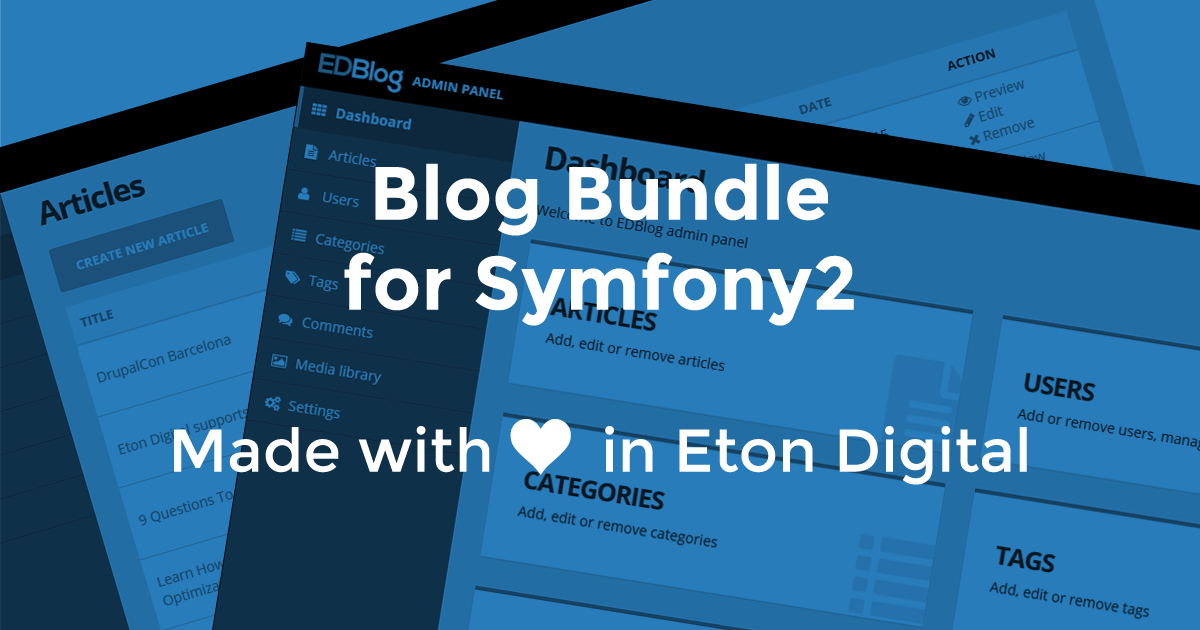As an open-source software and due to its modern web development principles, we recommend Symfony for a variety of websites, social networks, and projects and we invite you to learn more about our Symfony2 bundles – the blog bundle.
While working on various complex knowledge networks, social networks, social marketplaces, online marketplaces and the custom solution we recognised the need for creating a blog bundle that would be both user-friendly and feature-rich. We also needed a solution for the projects we are working on, and that’s when we decided to create a Blog bundle for Symfony2. Check it out!
For the past few months, we have been working on creating a feature-rich bundle, but our goal was also to make it as flexible as possible. We included features that will make blogging experience-rich, enhancing active and continuous participation:
- Blog admin panel
- User management, multiple roles (Contributor, Author, Editor and Administrator)
- Comments management
- Categories
- Tags
- Articles with multiple revisions, writing locks, autosave
- Media Gallery
- RSS feed
We were also relying on some favorite features you are probably already familiar with, such as FOSUserBundle (user management), SonataMediaBundle (media management), StofDoctrineExtensionsBundle and KnpPaginatorBundle, incorporating some of the best practice to develop an extensive and user-friendly blog bundle.
Here is a quick look at our Blog bundle:
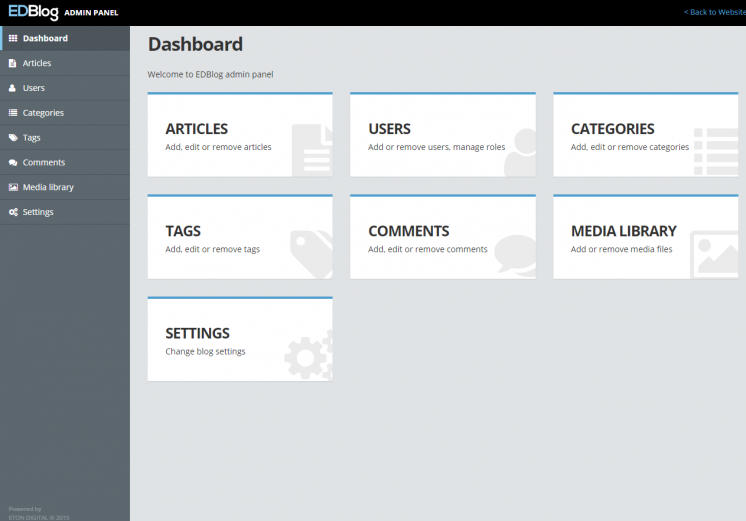
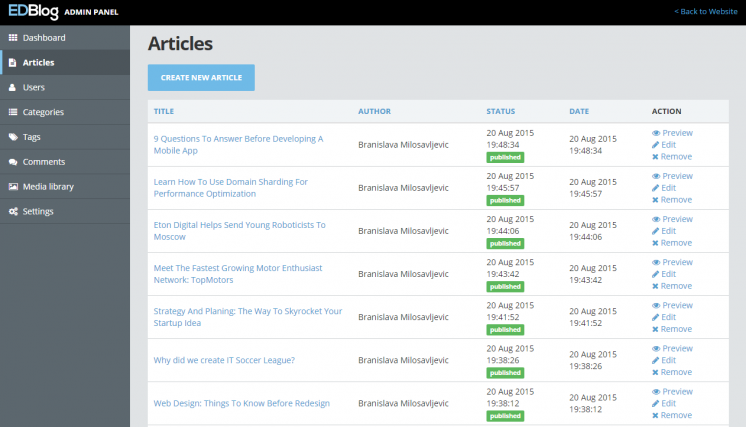
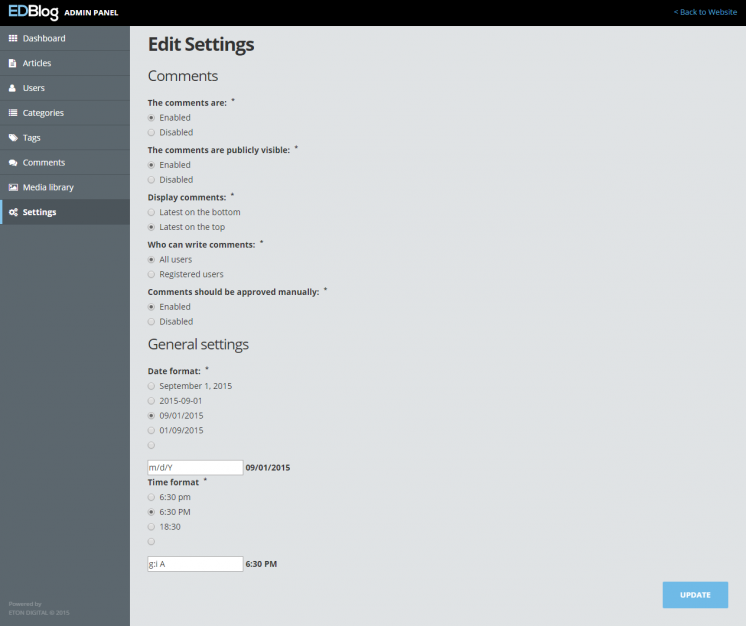
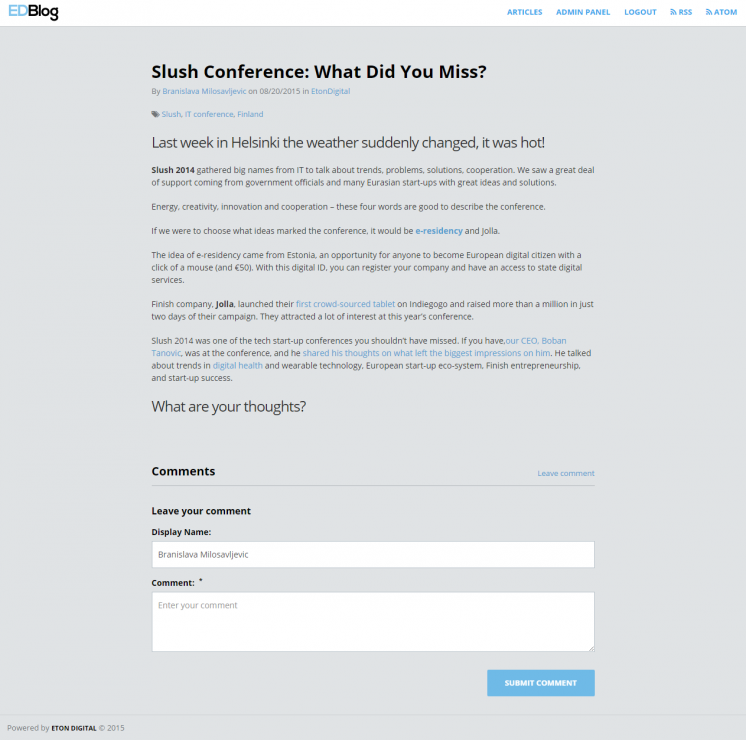
The code is on GitHub, as well as a detailed guide on how to integrate the bundle into your Symfony2 project.
As “first-class citizens in Symfony PHP,” bundles are meant to be reused and shared across many projects, and we hope that our EDBlog bundle will meet the needs of many Symfony developers and supporters.
One of the many reasons we at Eton Digital are focused on open source technologies is the fact that we can bring back to the community, contributing to an environment of constant learning and knowledge sharing. Also, check out some great Symfony project examples and see why brands are choosing Symfony.
Try it and tell us what you think. Your feedback is always welcomed!

